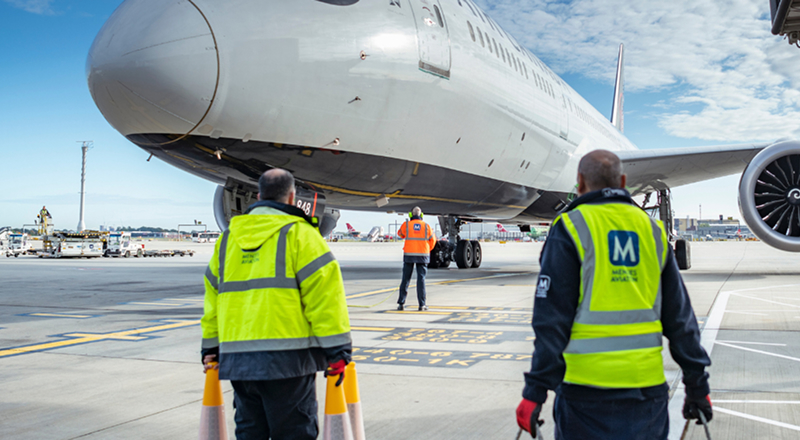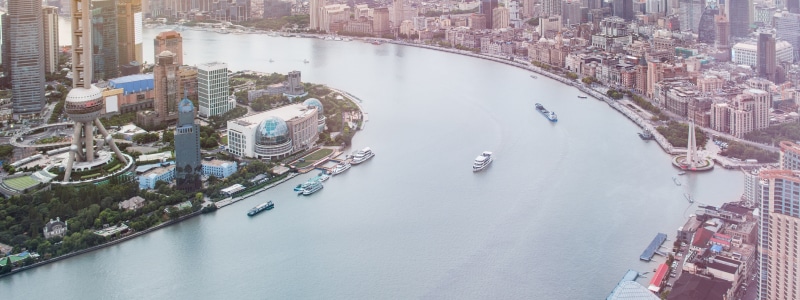How Better Warehouses Increase Trade in Africa

Kuwait-based Agility Logistics Parks customers can log-on to view contracts and make payments.
UK MOD personnel can log-in to the GRMS portal to schedule household relocation shipments.
Kuwait-based Agility Logistics Parks customers can log-on to view contracts and make payments.
UK MOD personnel can log-in to the GRMS portal to schedule household relocation shipments.
WTO chief Ngozi Okonjo-Iweala says we’ve entered an era of “re-globalization.” By that, she means companies are de-concentrating production to guard against the supply chain turmoil caused by the COVID pandemic and the war in Ukraine.
Businesses are choosing redundancy and resiliency over low cost because they think supply chain disruption will be with us for a while and because they want to protect against future shocks. The result, Okonjo-Iweala says, is the remaking of companies’ global footprints and supply networks.
Re-globalization raises lots of big questions. Among them:
Okonjo-Iweala says the trend could benefit developing countries. “It could bring them into the mainstream of globalization,” she says. “We see at the WTO a clear opportunity for decentralization to go to countries that normally don’t benefit from the global supply chain and could be brought in.”
To date, companies uprooting from China, Vietnam and other Asian manufacturing hubs seem to be opting for established regional production hubs and domestic reshoring rather than setting up shop in markets they see as riskier or untested. India, Turkey, Israel and Mexico, for example, have positioned themselves as alternative production centers for home goods and furniture, luring Overstock, La-Z-Boy and others looking to build new supply lines after battling endless delays out of Asian ports.
Manufacturing decentralization and “future-proofing” are causing pains of their own. Often, the issue is less about final assembly and proximity to markets than ready access to raw materials and proximity to suppliers. High-tech companies have invested in new production facilities in India only to encounter turbulence there: Foxconn and Wistron have faced labor unrest; Apple has run up against logistics problems and unfriendly export policies.
There’s a clear gap between what CEOs want to do and what they will do. A survey by the consulting firm Kearney found 70% of American manufacturing CEOs were considering or expect to move production to Mexico – but only 17% had done so.

In 2019, China accounted for nearly 29% of global manufacturing output. Efforts by businesses to spread and decentralize their production are almost certain to come at China’s expense and potentially hurt other Southeast Asian manufacturing hubs such as Vietnam, Thailand, Indonesia and Malaysia.
Russia’s invasion of Ukraine makes losers of both countries. Global buyers of Russian grains, fertilizer and minerals have been sent scrambling for new suppliers. Many may make their new arrangements permanent in light of the huge array of international sanctions now aimed at Russia. Similarly, customers that bought Ukrainian agricultural goods and auto parts also have seen supplies dry up and might be wary of relying on Ukraine in the future.
Inflationary pressures arising from pandemic chaos and the Ukraine conflict have rippled to unexpected places. One example: Indonesia, supplier of 60% of the world’s palm oil, cut off all exports in late April. It said Indonesians could no longer afford cooking oil because of a surge in global demand for edible oils caused by the loss of Ukrainian sunflower oil shipments.
It seems that way to many.
In his annual shareholder letter, BlackRock chief Larry Fink recently warned: “(T)he Russian invasion of Ukraine has put an end to the globalization we have experienced over the last three decades. We had already seen connectivity between nations, companies and even people strained by two years of the pandemic. It has left many communities and people feeling isolated and looking inward.”
Adam Posen, head of the Peterson Institute for International Economics, predicts that the world economy will split into blocs, “each attempting to insulate itself from and then diminish the influence of the other.” He predicts that “with less economic interconnectedness, the world will see lower trend growth and less innovation.”
Friction between China and its U.S. and European trading partners suggests that rival blocs are already emerging. U.S. Treasury Secretary Janet Yellen recently spoke of the need for “friend-shoring” — production relocations to countries “we know we can count on.” She warned against allowing countries to gain leverage in key raw materials, technologies and other products that would allow them to disrupt the U.S. economy.
Appliance maker Whirlpool is one company that says it is preparing itself for a “less global” world. Whirlpool is reviewing its businesses in Europe, the Middle East and Africa, and reassessing its mix of products and brands. CEO Marc Bitzer says the company sees less advantage in global scale and more in building its strength in individual countries and regions.

Not necessarily. Supply chains are always in flux, always evolving. And that’s healthy. Putting aside the pandemic and Ukraine conflict, there are profound structural changes taking place today and many of them could help bring about a cleaner, fairer, more prosperous world.
BlackRock sees “permanent transformations unlocking exponential growth opportunities.” One is the increasing spending power of millennials – particularly those in emerging markets. “Millennials have entered their peak spending years. Emerging market consumers and millennials are driving more than 50% of global spending,” says BlackRock’s Alex Eldemir.
McKinsey describes it as the changing geography of demand. The rising middle class in developing countries is accounting for more and more consumption. McKinsey says emerging markets will consume almost two-thirds of the world’s manufactured goods by 2025; developing countries will account for more than half of global consumption by 2030, signaling their growing role in the flow of goods, services, finance, people and data.
Keep in mind that the demand shift, triggered three decades ago by China and its Southeast Asian neighbors, has barely begun in India, Africa and the Middle East, all of which will be dominated by youthful populations hungry for jobs that offer higher living standards, connectedness, and upward mobility.
At the same time, BlackRock sees regulation, technology and consumer demand driving a powerful “industrial renaissance” that is just beginning. In the supply chain, that involves new digital platforms, AI, blockchain, IoT, manufacturing automation, and 3D printing, all of which are radically lowering the cost of logistics and production.
Even more broadly, though, climate awareness and geopolitical friction are driving energy and materials revolutions that will change every facet of our lives, from how we travel and eat, to where we live and what we wear.
Re-globalization will be what we make of it.